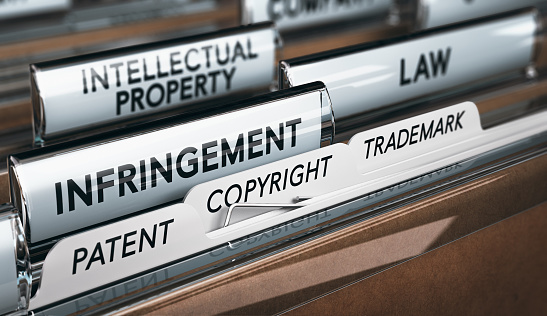Recent Articles
The 'License as Tax' Fallacy
Article, Spring 2022
Unreasonable: A Strict Liability Solution to the FTC's Data Security Problem
Article, Spring 2022
The Ping-Pong Olympics of Antisuit Injunction in FRAND Litigation
Article, Spring 2022
Content Moderation Remedies
Article, Fall 2021
An Empirical Study: Willful Infringement & Enhanced Damages in Patent Law After Halo
Article, Fall 2021
Recent Notes
The Best Data Plan Is to Have a Game Plan: Obstacles and Solutions to Reaching International Data Privacy Agreements
Note, Spring 2022
Mental Health Mobile Apps and the Need to Update Federal Regulations to Protect Users
Note, Spring 2022
Blog Posts
Is future-food unknown?
As we are reminded of on a near-daily basis, the American lifestyle is not environmentally friendly. Not only do we need to stop using SUVs to cart our kids to soccer, we need to find more sustainable food sources. And in true American fashion, Silicon Valley has risen to the occasion and provided some entrepreneurial solutions.
The Google Decision: A [Brand Name Redacted] Bandage for Genericide
Aspirin. Escalator. Trampoline. Three generic words with seemingly nothing in common. Those words, along with many others, were once legally protected trademarks. When a company’s mark becomes the generic name for its product or service, it can lose its trademark registration which can be extremely damaging to the company. A recent 9th Circuit decision upholding Google’s trademark may help other trademark owner’s avoid suffering a generic fate.
Who is behind your screen(s)?
One of the most important privacy cases this decade is currently in front of the Supreme Court: Carpenter v. United States. This decision will define how law enforcement interprets the Fourth Amendment regarding an individual’s cellphone. The decision hinges on whether law enforcement can use “third-party” doctrine dating from the 70s, which states that disclosing information to a third party does away with any expectation of privacy. We’ve already seen this doctrine in action. It allows law enforcement to compel cell-service providers to give historical cell-site records, without a warrant, to track down a serial cell phone thief. If SCOTUS upholds the current doctrine, then police would have free reign to monitor individuals’ cell phone location with little to no oversight.
The Controversial Genome-Editing Technique CRISPR-Cas9
On February 15, 2017, the Patent Trial and Appeal Board (PTAB) of the United States Patent and Trademark Office (USPTO) issued a ruling on a patent dispute about a genome-editing technique called CRISPR-Cas9. The Regents of the University of California, University of Vienna, and a scientist named Emmanuelle Charpentier (collectively “UC”) initiated this legal proceeding, called an interference, against the Broad Institute, Inc., Massachusetts Institute of Technology, and President and Fellows of Harvard College (collectively “Broad”). The three-judge panel unanimously sided with Broad concluding, although temporarily, a legal battle closely watched by scientists, legal professionals and the biotechnology industry. On April 12, 2017, UC filed an appeal to the United States Court of Appeals for the Federal Circuit.
Amazon Key Is Not As Invasive As You Think…Probably
Last month when Amazon announced its newest offering, Amazon Key, people were skeptical. Responses ranged from confused, to excited, to, naturally, cautious But now that it has officially arrived people are…still skeptical. And not without good reason.
#Mark – Is a Hashtag a Use in Commerce?
Hashtags are additions to social media posts that contain meta-data. For example, a couple may create a hashtag for their wedding. This allows people using social network websites, like Twitter, to easily upload and find posts and photos about the wedding.
One interesting question is whether hashtags can be trademarks.


